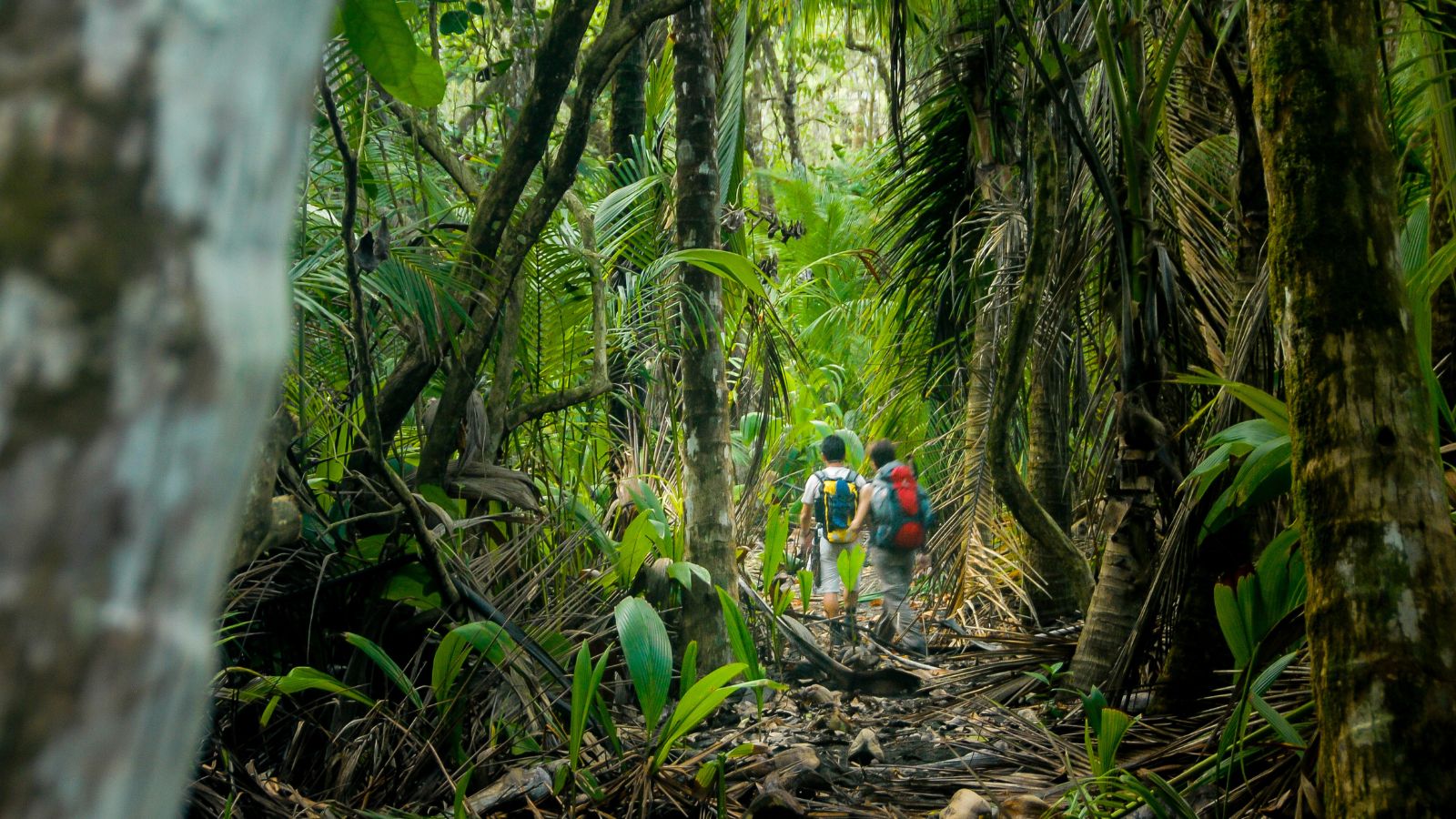With a combination of educational investments, evidence-based policy decisions, and strategic emphasis on innovation, Canada is steadily creating a knowledge-based society. From AI research hubs and tech accelerators to progressive urban planning and data-driven governance, here are 18 ways Canada is quietly becoming the smartest country.
Universal Public Education with Consistent Results

Canada’s commitment to high-quality public education has produced consistently strong results. Unlike many countries, Canada funds schools fairly evenly across provinces, reducing the achievement gap. In international benchmarks like PISA, Canadian students consistently rank among the top ten globally in reading, science, and mathematics. The country also offers strong early childhood education programs and bilingual instruction, ensuring literacy and numeracy skills are well-developed. Education is not a partisan issue in Canada, which allows long-term policy stability and incremental improvements.
World-Leading Artificial Intelligence Research

Canada is a global hub for artificial intelligence (AI), particularly in cities like Toronto, Montreal, and Edmonton. It was one of the first countries to fund AI research significantly, long before the trend became a global phenomenon. Institutions like the Vector Institute and MILA have attracted international talent and investment. Notably, Yoshua Bengio, one of the pioneers of deep learning, is based in Montreal. Canada’s approach includes open research models, which allow knowledge to spread more freely.
Strong Support for Public Libraries

Public libraries in Canada are not just repositories of books; they are vibrant community hubs. Cities like Toronto, Vancouver, and Halifax have invested in modernizing library systems to offer digital literacy training, maker spaces, free internet, and access to government services. These institutions level the playing field for people of all ages and backgrounds. Libraries also serve as safe learning environments for newcomers, low-income individuals, and students who need access to technology. Additionally, Canada’s public libraries often have longer hours than their counterparts in other countries and are staffed by professionals.
Commitment to Bilingualism and Language Learning

Canada’s commitment to bilingualism, officially recognizing both English and French, encourages the population to develop greater linguistic intelligence. Students across the country are often exposed to immersion programs from a young age, which studies show improve cognitive flexibility and communication skills. Additionally, Canada is placing a growing emphasis on Indigenous language revitalization, integrating languages such as Cree, Ojibwe, and Inuktitut into local curricula. This multidimensional approach to language learning fosters a deeper understanding of culture and history.
Focus on Evidence-Based Policy

Canada has adopted a model of policymaking that prioritizes data and research over ideology. The return of the long-form census in 2016, after its controversial cancellation, signaled a shift toward valuing evidence. Government agencies, such as Statistics Canada, play a central role in informing policy decisions with robust, nonpartisan data. Examples include using housing data to inform affordability strategies or climate research to shape emissions targets. Even during the COVID-19 pandemic, Canada generally deferred to scientists and public health experts, demonstrating a commitment to knowledge-led governance.
Heavy Investment in Post-Secondary Institutions

Universities and colleges in Canada receive significant public investment and enjoy autonomy that allows them to innovate. Institutions such as the University of Toronto, McGill University, and the University of British Columbia rank among the world’s best. Canadian schools also prioritize interdisciplinary research and global collaboration. Many campuses support entrepreneurship through incubators and accelerators that help turn ideas into commercial products. Accessibility remains a key focus, with financial aid systems that help reduce student debt burdens.
Robust Scientific Publishing and Open Access

Canada ranks among the top nations in scientific output and is also a leader in advocating for open access to publicly funded research. Universities and government agencies alike often publish their findings in freely accessible formats, ensuring that knowledge is not locked behind paywalls. The Canadian Institutes of Health Research (CIHR) requires open-access publishing for all projects funded by the organization. This openness accelerates innovation across disciplines, ensuring that both academics and the public can benefit from research funded by taxpayers.
Tech Ecosystem Focused on Smart Growth

Canada’s tech scene emphasizes thoughtful, sustainable innovation. Instead of chasing speculative startups, cities like Waterloo, Vancouver, and Ottawa have nurtured stable, high-performing tech clusters focused on health tech, cleantech, and AI. The federal government’s Global Innovation Clusters program has directed funding into areas such as digital technology and protein innovation. Canadian startups are encouraged to scale slowly and strategically, often with public support that emphasizes long-term impact over quick profits.
Inclusive Immigration Policies That Attract Talent

Canada’s merit-based immigration system helps bring in highly educated individuals who contribute to national intelligence. Programs like Express Entry assess candidates based on education, skills, and work experience. The country has also established pathways for international students to remain in the country after graduation, helping to retain global talent. These immigrants enrich the intellectual diversity of Canada’s workforce, especially in science, technology, engineering, and healthcare. With multicultural policies that encourage integration without assimilation, Canada creates environments where new ideas flourish.
Smart Urban Planning with Sustainability in Mind

Cities in Canada are becoming models of intelligent urban planning. Initiatives in Vancouver, Montreal, and Edmonton integrate transportation, green space, and density to improve livability. These cities utilize data and environmental research to inform zoning, public transit expansion, and energy use decisions. Smart cities, such as Toronto, are implementing pilot programs for digital infrastructure, while others focus on green roofs and sustainable architecture. These measures aren’t just about aesthetics or emissions; they also promote mental and physical health, social equity, and long-term resilience.
High Literacy and Numeracy Rates

Canada maintains some of the highest adult literacy and numeracy rates in the world, according to the OECD. These outcomes stem from a solid K–12 education system and a national culture that values continuous learning. Adult education programs, workplace training, and community learning initiatives help maintain and improve these skills throughout life. Provincial governments often fund programs for adults who missed earlier education opportunities. High literacy and numeracy aren’t just about reading and math—they correlate with civic engagement, job readiness, and better decision-making.
Public Broadcasting That Prioritizes Education

The Canadian Broadcasting Corporation (CBC) plays a vital role in public education. Beyond news, CBC produces documentaries, podcasts, children’s programming, and scientific explainers that are widely accessible and trusted. Initiatives like CBC Kids and CBC Ideas promote curiosity and civic understanding. In the North, CBC provides critical educational content in Indigenous languages. This emphasis on accessible, high-quality programming is supported by public funding and editorial independence, allowing it to serve as a non-commercial source of information.
Indigenous Knowledge Integration in Science and Education

Canada is increasingly recognizing Indigenous knowledge systems as complementary to Western science. Universities and government agencies are collaborating with Indigenous communities to integrate traditional ecological knowledge into environmental management, healthcare, and conservation efforts. For instance, land stewardship practices from Indigenous nations are being used to protect biodiversity and manage forests. In education, an increasing number of schools are incorporating Indigenous history, language, and perspectives into their curricula. This integration adds depth to scientific understanding and builds a more holistic, inclusive intellectual framework.
Smart Health Data Use

The country’s publicly funded healthcare system generates massive datasets, which are increasingly utilized for research and policy purposes. Provinces like British Columbia and Ontario maintain anonymized health databases that researchers can use to study disease trends, treatment outcomes, and public health interventions. AI tools are being deployed to predict hospital needs and detect outbreaks. Programs like CANImmunize and digital health cards streamline care delivery while preserving privacy. The insights derived from health data enable Canada to allocate resources more efficiently and enhance outcomes.
Investment in Climate Science and Green Innovation

Canada invests heavily in environmental research and technologies designed to combat climate change. National research organizations and universities receive funding to study glacial melt, forest carbon cycles, and Arctic ecosystems. The country also supports clean energy innovation through programs like Sustainable Development Technology Canada (SDTC), which funds startups developing a range of technologies, from green hydrogen to carbon capture and storage. Policies such as the carbon tax are based on economic and scientific modeling. These efforts go beyond environmentalism; they require and reflect deep scientific understanding.
Strong Civic Education and Democratic Literacy

Civic education is part of the Canadian school curriculum, helping students understand their rights, responsibilities, and how government works. Programs like Student Vote allow youth to participate in mock elections during federal and provincial campaigns, increasing political awareness from a young age. Nonprofits and public institutions offer workshops on media literacy, voting rights, and democratic processes. This focus helps cultivate a politically informed population that is less vulnerable to misinformation.
Thoughtful Regulation of Technology and AI

Canada takes a measured, ethics-focused approach to regulating emerging technologies. The federal government is currently developing the Artificial Intelligence and Data Act (AIDA), which would make it one of the first countries to set rules for responsible AI development and deployment. Privacy laws are also under review to better protect citizens in a digital world. Meanwhile, research institutions are encouraged to adopt ethics review boards and risk frameworks for technology pilots. By promoting transparency, accountability, and user protection, Canada aims to harness the benefits of tech without sacrificing rights.
Culture of Lifelong Learning

Canada promotes learning beyond formal education. From online courses funded by provincial governments to adult learning centers and workplace retraining programs, the country encourages skills upgrading at all ages. During the pandemic, initiatives such as free coding boot camps and virtual universities expanded rapidly. Libraries and community centers host workshops on everything from financial literacy to AI basics. Employers often subsidize continuing education to help workers adapt to changing industries and occupations.
21 Products Canadians Should Stockpile Before Tariffs Hit

If trade tensions escalate between Canada and the U.S., everyday essentials can suddenly disappear or skyrocket in price. Products like pantry basics and tech must-haves that depend on are deeply tied to cross-border supply chains and are likely to face various kinds of disruptions
21 Products Canadians Should Stockpile Before Tariffs Hit
